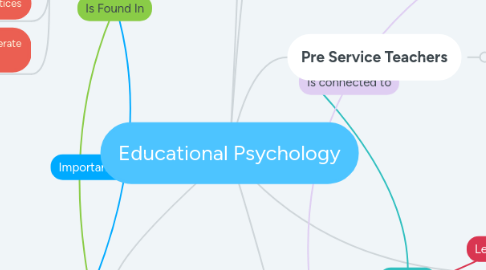Educational Psychology
by Nikki Baccarella


1. Progressivist Beliefs
1.1. Allow students to learn through inquiry and intellectual process
2. Outcomes of Reflection
2.1. Transformative Power of learning
2.2. Observation, discernment, critique, assessment, and appropriate response in the classroom
2.3. esponsibility to school‐university partnership, learners, schools, col‐ leagues, and communities
2.4. Interweaving of theory, research, and collaboration with teachers to develop effective practices
2.5. Opportunities to investigate own practices
2.6. Thoughtful, considered, and deliberate program innovation
3. Teacher Education Programs
3.1. Not enabled or empowered to reflect on
3.1.1. their beliefs about education
3.1.2. the theory/practice link
3.1.3. the value of cog‐ nitively dissonant situations
3.1.4. problems associated with inauthentic, imitation‐based responses to practicum situations
3.1.5. heir image of self‐as‐teacher
4. Traditionalist Beliefs
4.1. Facts, strict learning outcomes, strong authority roles
5. Effective Teaching
5.1. Aspects of Reflection
5.1.1. Testing and reframing of self
5.1.2. Knowledge of self
5.1.3. Understanding of ones beliefs about education
5.1.3.1. Role of the student
5.1.3.2. Role of the teacher
5.1.3.3. Function of curriculum
5.1.4. Delivery methods
5.1.5. Purposes of education
5.2. Humanistic approach
5.2.1. Connections to students
5.2.2. Addressing cognitive dissonance
5.2.3. Engaging on personal level
6. Pre Service Teachers
6.1. High Pressure
6.1.1. Some take on more traditional teaching styles in order to "move up in ranks"
6.1.2. Others become reflective and humanistic
